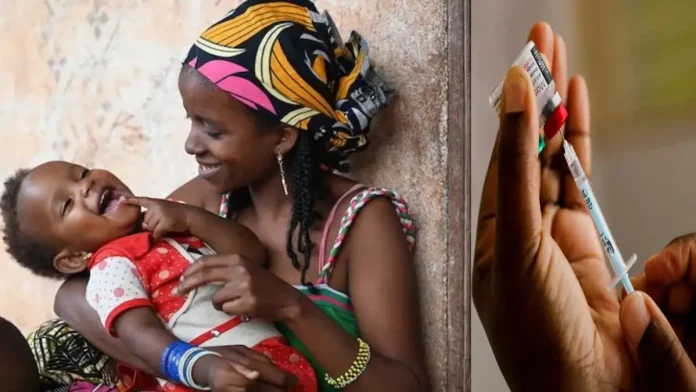In a groundbreaking move, Cameroon has launched the first nationwide malaria vaccination program, a development hailed as “historic” by the World Health Organization (WHO). Malaria, a mosquito-borne disease, claims the lives of over 600,000 people annually, with the majority of fatalities occurring in Africa.
The initiative comes as a crucial step in the battle against this deadly disease, particularly given that children under five years old account for more than 80 percent of malaria-related deaths on the continent. After a successful pilot phase, the RTS,S vaccine is now being scaled up across Africa, beginning with its implementation in Cameroon.
The first administration of the vaccine took place at a hospital in Soa, located 20 kilometers (12 miles) from the capital city, Yaoundé. Noah Ngah, a six-month-old child, marked the historic moment as the inaugural recipient of the injection at the facility. Numerous vaccine centers have been established across 42 priority districts in Cameroon, a vast central African nation with a population of approximately 28 million people.
The government has committed to providing the vaccine free of charge, making it available systematically to all children under six months old. This distribution will be integrated with other mandatory or recommended vaccinations, streamlining the process for caregivers.
In November, the WHO, the UN children’s agency UNICEF, and the Gavi vaccine alliance jointly stated that Cameroon’s initiative is a “historic step towards broader vaccination against one of the deadliest diseases for African children.” The concerted effort aims to significantly reduce the impact of malaria, contributing to improved health outcomes for the nation’s youngest population.”



